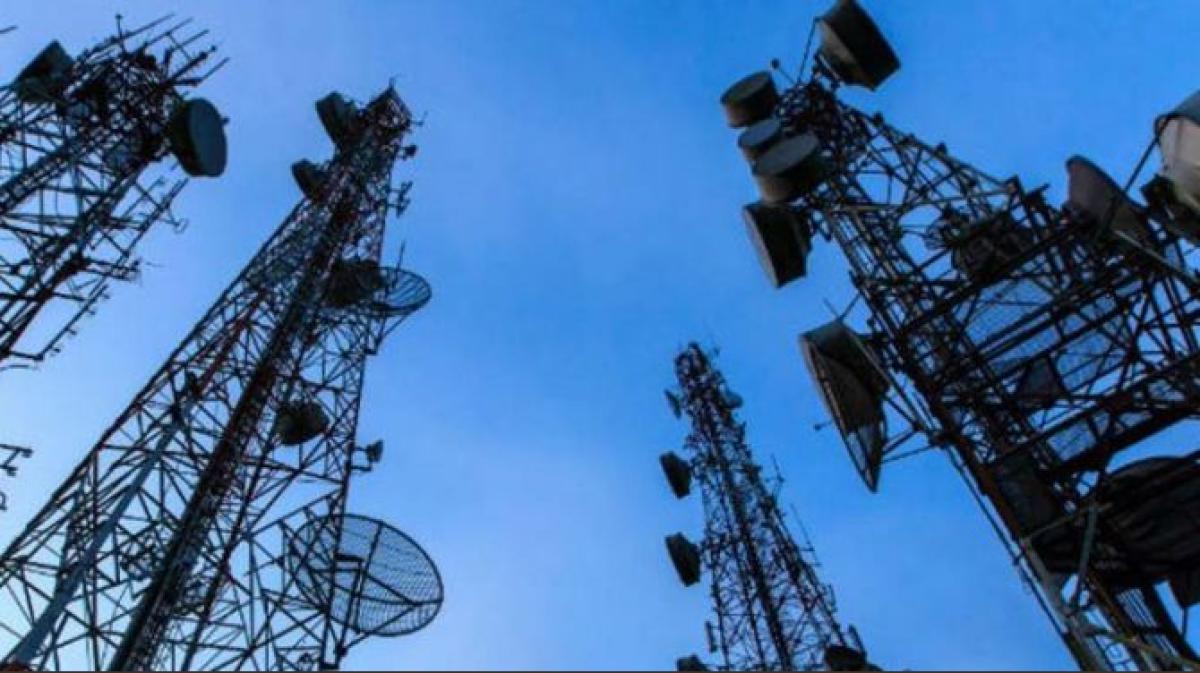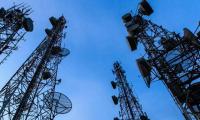Trai Defends Satcom Spectrum Levy: No Threat to Telcos
x
Trai counters claims that its proposed 4% spectrum levy on satcom companies like Starlink will harm telcos, stating satellite services are complementary, not competitive.

New Delhi, May 9 (PTI) Telecom regulator Trai on Friday countered arguments that its suggestions of fixing the spectrum levy at four per cent of revenue for satcom companies like Starlink will distort the market or deal a blow to terrestrial players, such as Reliance Jio and Bharti Airtel.
Trai Chairman Anil Kumar Lahoti asserted that the perception that satellite services have started competing with terrestrial services in other markets is "not a factually correct statement".
"We have demonstrated in our presentation also, and it is part of our analysis in the recommendation...there is a huge difference between the capacity of terrestrial and satellite networks, and the ratio ranges from 60:1 to 250:1," Lahoti said.
There is no question of the two services being at par, he said, pointing out that they are, in fact, complementary.
Citing a case in point, the Trai chief said that in Delhi, against a requirement of 50 lakh broadband connections, a single satellite constellation can offer just 10,000-20,000 connections.
"That is the kind of ratio. If in Delhi, a satellite operator starts offering a product at a cost lower than terrestrial service providers, they will be sold out within days. There is a huge difference between the capacity of the two, and we don't think in the foreseeable term of five years, the situation is likely to significantly alter," he noted.
On the rationale of pricing, Trai said it has examined thoroughly and in detail whether there is any case of real competition or level-playing field between the two types of services.
"After detailed examination, we have found that the satellite services will be complementary and not competing with the terrestrial services," he said.
While the spectrum is assigned exclusively in the case of terrestrial broadband services, for satcom services, it is a pooled resource.
"So, the two cannot be priced at par," Lahoti said.
In the Global context, too, he said, the pricing of spectrum for satellite services in a large number of other markets is very low.
The telecom regulator on Friday recommended that satellite communication companies like Starlink pay 4 per cent of their adjusted gross revenue (AGR) as spectrum charges to the government -- a rate which, though steeper than what these firms had been lobbying for, is bound to jolt telcos.
Operators offering satellite-based broadband internet services in urban areas would have to shell out an additional Rs 500 per subscriber annually, Trai said in its recommendations to the Department of Telecommunications (DoT). No additional levy would be applicable for services in rural areas.
Besides the spectrum pricing, an 8 per cent licence fee levy would also be applicable for satcom players, Lahoti said.
"Spectrum pricing and licence fee are different, and it is the same situation for the terrestrial network also. The licence fee has to be paid as per the terms of the licence, and spectrum charges are to be paid as per the assignment of spectrum. The two are additional," he said.
On whether the bilateral trade negotiations had any bearing on the satcom recommendations, the regulator said its role is confined to the reference received from the government on spectrum pricing and other terms.
"We have only dealt with the subject in the context of the reference received. Any issues with respect to bilateral trade agreements are dealt with by the government, not Trai," he said.
On whether Starlink would be able to offer its services direct-to-mobile in India after it pays stipulated spectrum charges, Lahoti said the satellite constellation for which the company has applied for InSpace permission operates in Ku and Ka bands, which are not supported by mobile phone devices.
On satellites beaming services directly to mobile phones, Lahoti said such 'non-terrestrial networks' typically operate in the same bands as terrestrial, but then in such cases, the satcom players globally take the spectrum from their terrestrial counterparts.
Trai Chairman Anil Kumar Lahoti asserted that the perception that satellite services have started competing with terrestrial services in other markets is "not a factually correct statement".
"We have demonstrated in our presentation also, and it is part of our analysis in the recommendation...there is a huge difference between the capacity of terrestrial and satellite networks, and the ratio ranges from 60:1 to 250:1," Lahoti said.
There is no question of the two services being at par, he said, pointing out that they are, in fact, complementary.
Citing a case in point, the Trai chief said that in Delhi, against a requirement of 50 lakh broadband connections, a single satellite constellation can offer just 10,000-20,000 connections.
"That is the kind of ratio. If in Delhi, a satellite operator starts offering a product at a cost lower than terrestrial service providers, they will be sold out within days. There is a huge difference between the capacity of the two, and we don't think in the foreseeable term of five years, the situation is likely to significantly alter," he noted.
On the rationale of pricing, Trai said it has examined thoroughly and in detail whether there is any case of real competition or level-playing field between the two types of services.
"After detailed examination, we have found that the satellite services will be complementary and not competing with the terrestrial services," he said.
While the spectrum is assigned exclusively in the case of terrestrial broadband services, for satcom services, it is a pooled resource.
"So, the two cannot be priced at par," Lahoti said.
In the Global context, too, he said, the pricing of spectrum for satellite services in a large number of other markets is very low.
The telecom regulator on Friday recommended that satellite communication companies like Starlink pay 4 per cent of their adjusted gross revenue (AGR) as spectrum charges to the government -- a rate which, though steeper than what these firms had been lobbying for, is bound to jolt telcos.
Operators offering satellite-based broadband internet services in urban areas would have to shell out an additional Rs 500 per subscriber annually, Trai said in its recommendations to the Department of Telecommunications (DoT). No additional levy would be applicable for services in rural areas.
Besides the spectrum pricing, an 8 per cent licence fee levy would also be applicable for satcom players, Lahoti said.
"Spectrum pricing and licence fee are different, and it is the same situation for the terrestrial network also. The licence fee has to be paid as per the terms of the licence, and spectrum charges are to be paid as per the assignment of spectrum. The two are additional," he said.
On whether the bilateral trade negotiations had any bearing on the satcom recommendations, the regulator said its role is confined to the reference received from the government on spectrum pricing and other terms.
"We have only dealt with the subject in the context of the reference received. Any issues with respect to bilateral trade agreements are dealt with by the government, not Trai," he said.
On whether Starlink would be able to offer its services direct-to-mobile in India after it pays stipulated spectrum charges, Lahoti said the satellite constellation for which the company has applied for InSpace permission operates in Ku and Ka bands, which are not supported by mobile phone devices.
On satellites beaming services directly to mobile phones, Lahoti said such 'non-terrestrial networks' typically operate in the same bands as terrestrial, but then in such cases, the satcom players globally take the spectrum from their terrestrial counterparts.
You May Like To Read
TODAY'S MOST TRADED COMPANIES
- Company Name
- Price
- Volume
- Vodafone-Idea-L
- 11.65 (+ 3.56)
- 106772451
- Alstone-Textiles
- 0.28 ( -3.45)
- 44187760
- Mangalam-Industrial
- 0.88 ( -2.22)
- 39177573
- Sunshine-Capital
- 0.27 (+ 3.85)
- 35956340
- GMR-Airports
- 104.40 (+ 6.37)
- 30453005





